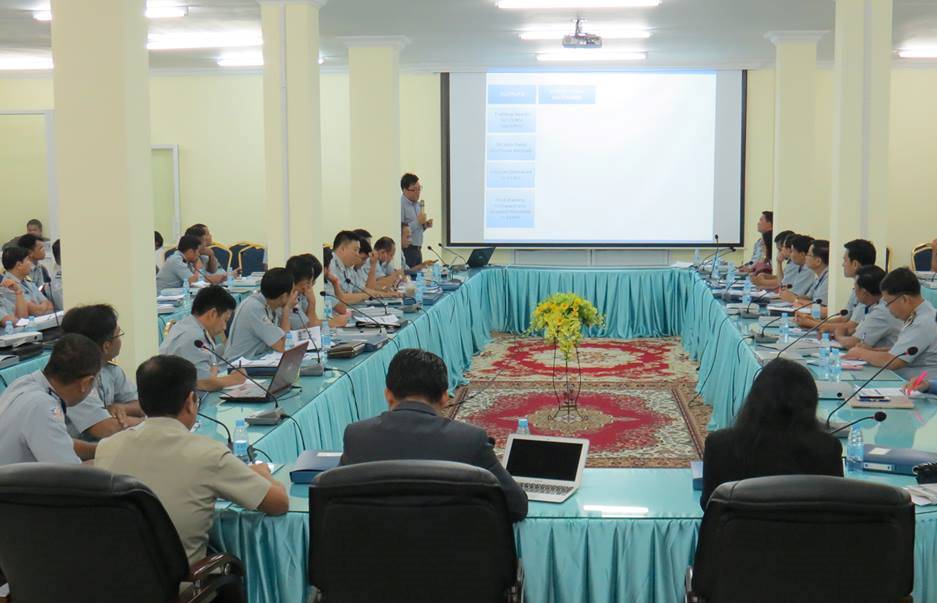Mekong Institute (MI), together with the Cambodia Import-Export Inspection and Fraud Repression Directorate General (CAMCONTROL), has successfully delivered a training-workshop on Food Safety Risk Analysis and Agri-food Inspection and Audit at the CAMCONTROL Headquarters, Phnom Penh, Cambodia on October 17, 2017.
Sixty-two food inspectors from 25 provincial and municipal CAMCONTROL branches participated in the training-workshop, which aims to enhance the participants’ knowledge and technical capacity in food safety inspection and audit, as well as introduce basic concepts in food safety risk analysis including risk assessment, management, and communication. Together with experts from CAMCONTROL, the training was spearheaded by MI alumni who attended the Regional Training Programs on Agri-Food Inspection and Audit in June and Mainstreaming Food Safety Risk Analysis in July this year.
Delivering the Welcome Remarks, Ms. Maria Theresa S. Medialdia, Director of MI’s Agricultural Development and Commercialization Department, first acknowledged the New Zealand Aid Programme for their support to the Project and CAMCONTROL for serving as the Project’s focal point in Cambodia. She then explained that the training-workshop is part of the action plan implementation of three of the nine CAMCONTROL senior to mid-official levels who participated in the aforementioned food safety courses at MI.
Ms. Medialdia also noted that the current food safety systems are quite complex, so the technical capacity of inspectors must be enhanced so they can better understand the industrial processes and identify potential food safety hazards and risks. It is important to have the requisite skills in inspecting premises, collecting food samples and carrying out an overall evaluation. She conveyed her hopes that the training-workshop will provide the knowledge on food safe risk analysis and lead to improved capacities and skills of the inspection staff.
Likewise, H.E. Mr. Phan Oun, Deputy Director General of CAMCONTROL, in his opening address commended the initiative of a training-workshop, which he notes as an excellent opportunity for CAMCONTROL food inspectors from across the country to learn and share their knowledge and experiences in dealing with food safety control at markets, import-export, and cross-border control. Underscoring the role of food inspectors, he stressed that CAMCONTROL inspectors should have a good knowledge of food safety, a clear understanding of relevant food laws and regulations, as well as the obligations such laws impose on the food sector.
To therefore ensure fair trade practices and protect the consumers, he stressed that food control systems must be strengthened, adding that it is particularly crucial for Cambodia to implement and enforce a food control system based on the modern concept of risk analysis. In closing, he encouraged food inspectors to be more vigilant in their work to prevent fraud and deception, stop food adulteration, protect public health and facilitate trade.








